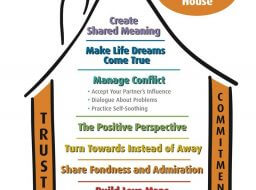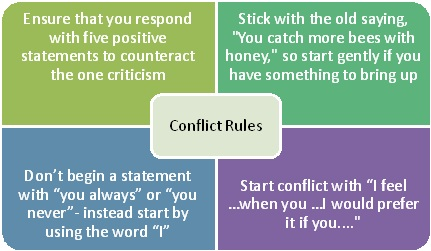- HOME
- PSYCHOLOGICAL SERVICES
- ONLINE COURSES
- Our Partnership Begins When You Purchase an Online Course
- Get to Know Dr. D’Arienzo, Relationship Expert
- Florida Premarital Preparation Online Course
- Georgia Premarital Education Online Course
- TwogetherinTexas Premarital Online Course
- Tennessee Premarital Preparation Online Course
- Minnesota Premarital Education Course Online
- Oklahoma Premarital Counseling Online Course
- South Carolina Premarital Preparation Course
- West Virginia Premarital Education Course
- Online Marriage and Relationship Tune Up Course
- Florida DCF Certified Parent Education and Family Stabilization Online Course
- Georgia Qualified Parent Education and Family Stabilization Online Course
- Texas Qualified Parent Education and Family Stabilization Online Course
- High Conflict Co-Parenting Online Certificate Course (8 Hours)
- Online Anger Management Four Hour Course (Level 1)
- Online Anger Management Eight Hour Course (Level 2)
- Sexual Harassment Online Training
- BUSINESS & PERFORMANCE PSYCHOLOGY
- CLINICAL, COUPLES, & FAMILIES
- ADHD Treatment & Evaluation Services
- Anger Management
- Anxiety Treatment & Evaluation Services
- Borderline Personality Treatment Services
- Cognitive Behavioral Therapy (CBT) Self-Help
- Couples Counseling and Marital Therapy
- Consent for Psychological Services for Minors Post-Divorce
- Depression Treatment Services
- Infidelity Recovery
- Jacksonville Counseling and Psychology
- Military Psychology & Tricare
- Narcissistic Personality Treatment Services
- Online Counseling
- Psychoeducational Testing
- Psychological Testing and Assessment
- Psychotherapy & Counseling
- FORENSIC PSYCHOLOGY & EXPERT TESTIMONY
- LIFE COACHING & EXECUTIVE COACHING
- MMPI TESTING & ASSESSMENT FOR SECURITY AND LEO
- CPI Police and Public Safety Assessment
- G License Psychological Testing
- Online Psychological Testing for Armed Security Guards and Personal Protection Officers
- MMPI Texas Level III CSO and IV PPO Psychological (ONLINE)
- Requirement for Texas Security License Applicants: MMPI Evaluation
- Level 3 Security Guard New Mexico Online MMPI Psychological Evaluation
- PSYCHOLOGICAL PUBLIC DISABILITY QUESTIONNAIRES (DBQ)
- ONLINE COURSES
- TEAM
- D’Arienzo Psychological Group Overview
- Dr. Justin D’Arienzo, Psy.D., ABPP
- Mario Decunto, LMHC
- Dr. Amy Hartley, Ph.D.
- Dr. Erica Janson, Psy.D.
- Alan Lipzin, LMHC
- Cynthia Salameh, Esquire
- Wendy Monger, Tutoring Specialist and Academic Coach
- Dr. Michael Nackashi, Psy.D., Clinical Psychologist
- Joseph Zichi, LCSW
- Mack, Roman and Roxy D’Arienzo
- MERCH & SOCIAL MEDIA
- BOOKS
- APPT REQUEST
D'Arienzo Psychology Blog
Navigating Bohannon’s Six Stages of Divorce: A Psychologist’s Guide to a Smoother Transition
Posted by: Dr. Justin D'Arienzo, Psy.D., ABPP
Divorce is more than a legal split. It’s a complex emotional, social, and psychological journey. Learn how Bohannon’s six stages of divorce affect families and discover expert-backed strategies to ease the transition with the help of D’Arienzo Psychology’s specialized divorce courses.
When a student makes a threat at school what do you do

Posted by: Dr. Justin D'Arienzo, Psy.D., ABPP
When a Student Makes a Threat at School, What Do You Do? When a student makes a threat within a school environment, it’s a critical moment that demands a swift, comprehensive, and nuanced response. As psychologists, it’s clear that such situations are complex and involve numerous factors, including the mental health of the student, the safety of the school community, and legal considerations. Here are key steps schools should take in response to a threat: Immediate Action and Assessment
Ensure Immediate Safety: The first priority is to ensure the safety of all students and staff. This may involve securing the area, notifying security personnel, and possibly even a temporary lockdown, depending on the nature and severity of the threat. Evaluate the Threat: It’s essential to quickly assess the credibility and specificity of the threat. This involves determining whether the student has the means, motive, and opportunity to carry out the threat. Professionals trained in threat assessment should be involved in this process.
Involving the Right Resources. Mental Health Evaluation: A critical next step is to have the student evaluated by a mental health professional. This evaluation can help determine the underlying issues contributing to the threat, such as emotional distress, psychological disorders, or external pressures. Collaboration with Law Enforcement: In cases where the threat is deemed credible and specific, it’s crucial to involve law enforcement agencies. They can provide additional security, guidance, and ensure that any legal requirements are met.
Accessing Mental Health Care with Non-Network Providers for Mayo Clinic Employees

Posted by: Dr. Justin D'Arienzo, Psy.D., ABPP
For Mayo Clinic employees, prioritizing mental health is essential for maintaining overall well-being. While the Mayo Clinic’s health insurance offers comprehensive coverage for mental health services, there are instances where employees may choose or need to see a non-network provider. Whether it’s due to a specific therapeutic need, a preferred specialist, or geographic limitations, understanding how to navigate reimbursement for these services is crucial. This article provides a guide for Mayo Clinic employees seeking mental health services outside the insurance network.
D’Arienzo Psychology has served multiple Mayo employees over the last 20 years as non network psychologists, counselors, and therapists. We are accustomed to filling out the necessary forms to assist you in getting reimbursed. It has been our experience that a large portion of your bills are reimbursed by Mayo’s insurance plan. Don’t be anxious about the process. You deserve the best mental health services available, and we can help you get them with us. Contact us at 904-379-8094 or [email protected]
Where Can I Find Divorce Parenting Classes?

Posted by: Dr. Justin D'Arienzo, Psy.D., ABPP
You Can Find Divorce Parenting Classes Right Here!!! If you are looking for a high conflict coparenting course or a parent education and family stabilization course that is online and taught by a Clinical and Forensic Psychologist who frequently provides court testimony for Family Law cases or works with parents and children experiencing a divorce, then you have landed on the right page. Our online divorce courses are accepted by family law courts and judges. If you don’t believe us, check with your attorney or Judge. Our Parent Education and Family Stabilization course is most often utilized by parents in Florida, Georgia, and Texas. If you need a certificate to list another state or provience, then let us know and we can make that happen for you. Our high conflict coparenting course can be used in all US states, the United Kingdom, and Australia.
Strategies for Effectively Managing Anger in Your Teenager

Posted by: Dr. Justin D'Arienzo, Psy.D., ABPP
This article provides insights into managing anger in teenagers by understanding triggers and employing effective methods. It emphasizes open communication, coping mechanisms, and setting boundaries to foster healthier parent-teen relationships. Hormonal changes, brain development, and the quest for independence contribute to heightened emotions during adolescence. Recognizing triggers, like academic stress and conflicts, is vital for tailored strategies.
Navigating Road Rage

Posted by: Dr. Justin D'Arienzo, Psy.D., ABPP
This article discusses the increasingly prevalent issue of road rage and suggests a series of effective strategies to manage it, backed by scientific research. First, self-awareness is emphasized as critical in recognizing triggers and symptoms of road rage. Techniques such as deep breathing and stress management practices can mitigate feelings of anger and frustration. The article underlines the importance of communication on the road, including the use of respectful gestures and appropriate signaling to create a considerate driving environment. It advises against retaliation when faced with aggressive drivers and recommends distancing oneself and reporting threatening behavior. The piece mentions the role of technology, highlighting apps like Drivemode and LifeSaver that help manage road rage. It concludes by stressing the importance of empathy, recognizing that understanding others’ experiences can defuse anger and foster patience. These approaches collectively can significantly decrease road rage, contributing to safer roads.
The Gottman Approach to Couples Therapy

Posted by: Dr. Justin D'Arienzo, Psy.D., ABPP
The Gottman Approach is a research-based approach to couples therapy that has been shown to be effective in helping couples improve their communication, resolve conflict, and strengthen their relationships. What is the Gottman Approach? The Gottman Approach is based on the idea that all relationships go through ups and downs, and that it is possible to learn how to weather the storms and come out stronger on the other side. The approach focuses on helping couples to: Understand their own and their partner’s emotional needs. Communicate effectively with each other. Resolve conflict in a healthy way. Build trust and intimacy. Maintain a positive outlook on their relationship.
How does the Gottman Approach work? The Gottman Approach is typically conducted over a series of weekly or biweekly sessions. In each session, the therapist or psychologist will work with the couple to: Identify their strengths and weaknesses as a couple. Learn how to communicate effectively with each other. Resolve conflict in a healthy way. Build trust and intimacy. Maintain a positive outlook on their relationship.
5 Tips for Effective Communication

Posted by: Dr. Justin D'Arienzo, Psy.D., ABPP
Communication is one of the most important skills in any field. Whether you’re a student, a professional, or just trying to get through your day, being able to communicate effectively can make a big difference. In this post, we’ll discuss five tips for effective communication. By following these tips, you can improve your communication skills and make a positive impact on your relationships, your career, and your life. Tip #1: Be clear and concise. When you’re communicating with someone, it’s important to be clear and concise. This means using language that is easy to understand and avoiding jargon or technical terms that the other person may not be familiar with. It also means getting to the point quickly and avoiding rambling.
Tip #2: Use active listening skills. Active listening is just as important as clear communication. When you’re listening to someone, it’s important to make eye contact, nod your head, and ask clarifying questions. This shows the other person that you’re paying attention and that you’re interested in what they have to say. Tip #3: Be respectful of others. Even if you disagree with someone, it’s important to be respectful of their opinion. This means avoiding personal attacks and name-calling. It also means listening to their point of view and trying to understand where they’re coming from. Find out more tips….
How to Spot a Narcissist

Posted by: Dr. Justin D'Arienzo, Psy.D., ABPP
How to spot a narcissist? Dr. D’Arienzo, Clinical Psychologist here. I am going to share five signs that indicated you might be dealing with a narcissist. Receiving criticism: Their fragile self-esteem can’t even handle constructive criticism. Feedback seems like a direct attack. Losing Control: When they lose control of situations and people around them, they feel powerless because it contradicts their grandiose image of themselves. Not being admired: They thrive on admiration and attention and when they are ignored and don’t get what they think they deserve they pout, and get frustrated and angry. Being exposed: They create a false persona to maintain their inflated self-image but when someone exposes their true self, vulnerabilities or manipulations, they go on the attack. Losing a competition: They think they are superior to others and when someone beats them, they feel inferior, so they react with rage, make excuses, and “file away” a serious resentment. Losing is personal to a narcissist. Obviously, we all have some of these traits, but if you’re narcissist, you would have most of these and to the extreme. If that’s you or your in a relationship with one, get professional help.
Planning a Spring Wedding?

Posted by: Dr. Justin D'Arienzo, Psy.D., ABPP
Are You Planning a Spring Wedding? The Allure of Spring Weddings: Celebrating Love Among Blossoms and New Beginnings. The transition from winter to spring represents a time of renewal, growth, and beauty. As nature awakens and blooms, it’s no wonder that many couples choose this season to begin their journey together as a married couple. Spring weddings have a certain charm and romance that can’t be replicated in other seasons. From the abundance of flowers to the mild weather, spring provides an enchanting backdrop for a magical wedding. In this article, we’ll explore the top reasons why you should consider getting married in the spring.
See below for information about our Florida, Texas, Georgia, Tennessee, Minnesota, Oklahoma, and South Carolina Premarital Preparation Courses.




